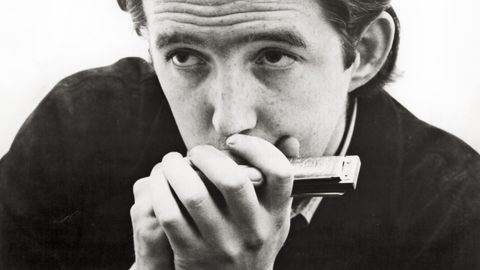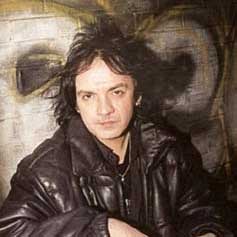In many ways, Paul Butterfield’s early career resembles that of late London blues titan Cyril Davies. Both were tough characters who led incendiary bands with their supernatural harmonica chops, nurturing future musical giants as they brought their blues to white audiences. Both are also often overlooked after they left the world too early.
Hailing from Chicago and encouraged by Muddy Waters, Butterfield’s first mighty line-up included guitarists Mike Bloomfield and Elvin Bishop, organist Mark Naftalin, bassist Jerome Arnold and drummer Sam Lay from Howlin’ Wolf’s band.
Bob Dylan was so impressed with their performance at the 1965 Newport Folk Festival he invited Bloomfield and the rhythm section to back him on his controversial electric set the next night; later getting the guitarist to play on Highway 61 Revisited.
By that time, Butterfield’s band had laid down an album of dirty blues covers for Elektra (here as The Original Lost Elektra Sessions), which producer Paul Rothchild had scrapped in favour of recording what became October 1965’s self-titled debut album.
Rather than replicate old formulas, Butterfield redefined modern electric blues with scorching covers and feisty originals before taking a giant step with 1966’s seminal East-West. Inspired by John Coltrane’s modal jazz, LSD and Indian ragas, the 13-minute title track laid the template for rock improvisation. It was consummated by the masterclass in jazz dynamics displayed on a scintillating version of Nat Adderley’s Work Song. The album also includes Mary Mary, an early marijuana ditty composed by future Monkee Mike Nesmith.
As his original group started flying the nest, Butterfield embraced brass-driven soul and R&B on 1967’s gritty The Resurrection Of Pigboy Crabshaw, a direction he refined on the ensuing In My Own Dream and Keep On Moving.
When the Butterfield Blues Band split after 1971’s Sometimes I Just Feel Like Smilin’, Butterfield formed Better Days, with Geoff Muldaur on vocals. They released two albums before Butterfield softened the edges on 1976’s Put It In Your Ear and 1981’s North South. By 1987, Butterfield had developed a heroin addiction, and fatally overdosed.
This magnificent box contains all these albums plus a previously unreleased 1969 show. Although things later got patchy, those 60s albums can still take the breath away as they lay vital foundations for modern music – the ultimate electric blues torrent, led by that unearthly harmonica.
FINAL VERDICT: 8⁄10


